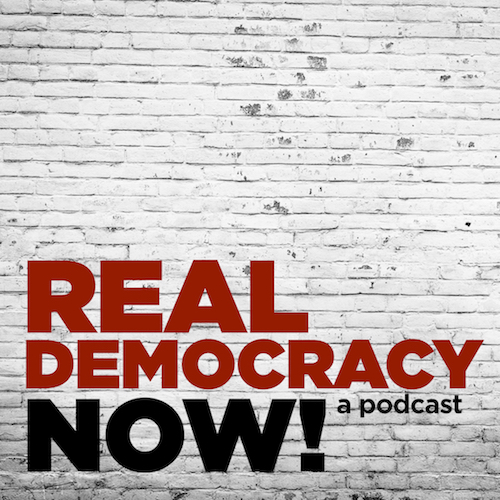Welcome to episode 4 of Season 2 of Real Democracy Now! A podcast. Today’s episode is about non-Western democracy. I’d like to thank David Schecter for bringing this area of democratic thinking and practice to my attention and for introducing me to my two guests: Associate Professor Benjamin Isakhan and PhD scholar Zelalem Sirna from Ethiopia. Both guests highlight the Eurocentric nature of much of the discourse on democracy and introduce us to some non-western examples of democratic practice.
Benjamin Isakhan is Associate Professor of Politics and Policy Studies and Founding Director of POLIS, a research network for Politics and International Relations in the Alfred Deakin Institute for Citizenship and Globalization at Deakin University, Australia. He is also Adjunct Senior Research Associate, in the Department of Politics and International Relations at the University of Johannesburg, South Africa and an Associate of the Sydney Democracy Network at the University of Sydney, Australia. Ben is the author of Democracy in Iraq: History, Politics, Discourse (Routledge, 2012 HB, 2016 PB) and the editor of 6 books including The Secret History of Democracy (Palgrave Macmillan, 2011 HB, 2012 PB – translated into Japanese 2012, and Arabic 2014), and The Edinburgh Companion to the History of Democracy: From Pre-History to Future Possibilities (Edinburgh University Press & Oxford University Press, 2012 HB, 2015 PB). He is a leading expert and regular commentator on Middle Eastern Politics, Democracy and Democratization across the Middle East, and Heritage Destruction in the Middle East.
Zelalem Sirna is a PhD scholar at the University of Coimbra in Portugal in the programme of Democracy in 21sy Century. He earned his LL.B degree in law from the Haramaya University Ethiopia and his MPhil in Indigenous Studies from University of Tromso, Norway. For his Masters, he undertook a comparative study of Gadaa, the traditional system of governance in Ethiopia and liberal democracy. For his Ph, he is looking at deliberative democracy, deliberative systems and the Gadaa system. As a sociology-legal researcher, is main works are focused on normative pluralism and the challenges it poses in 21st century.
The next episode will consider what my guests think is the one change they would like to see in our system of democracy. I ask all of my guests the same two questions:
1. what for you is the essence of a real democracy and
2. if you could change one thing about our current system of democracy what would it be.
I’d love to hear your answers to these two questions and include your perspectives in future episodes. You can send your perspectives to me by email to essence@realdemocracynow.com.au or via Twitter or Facebook.
